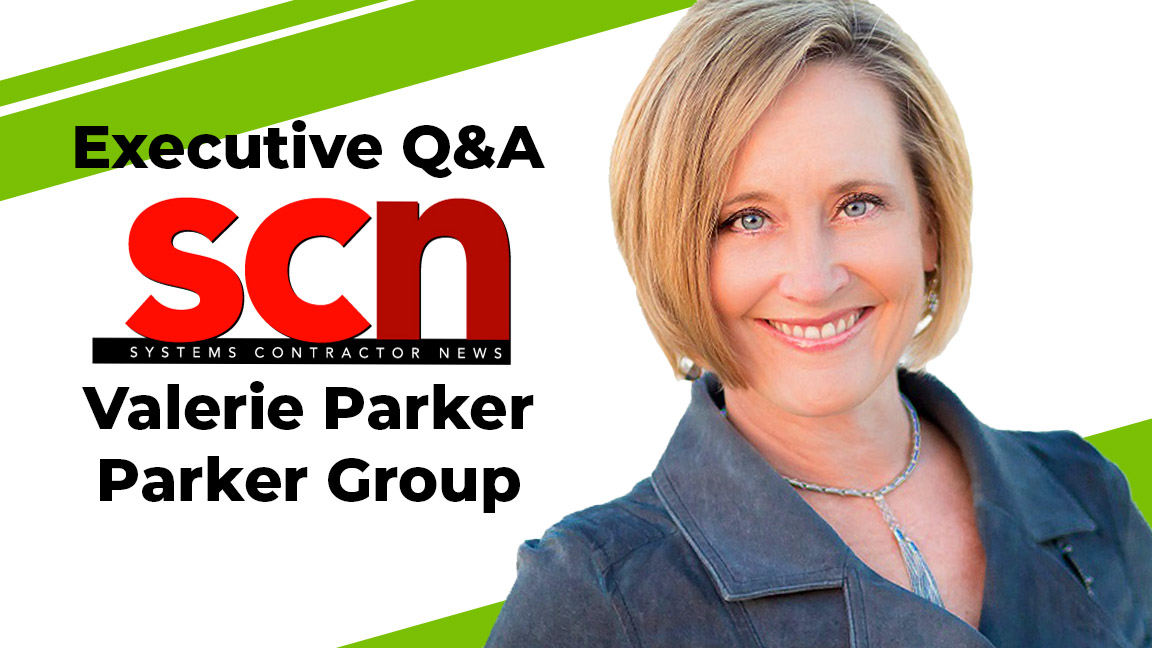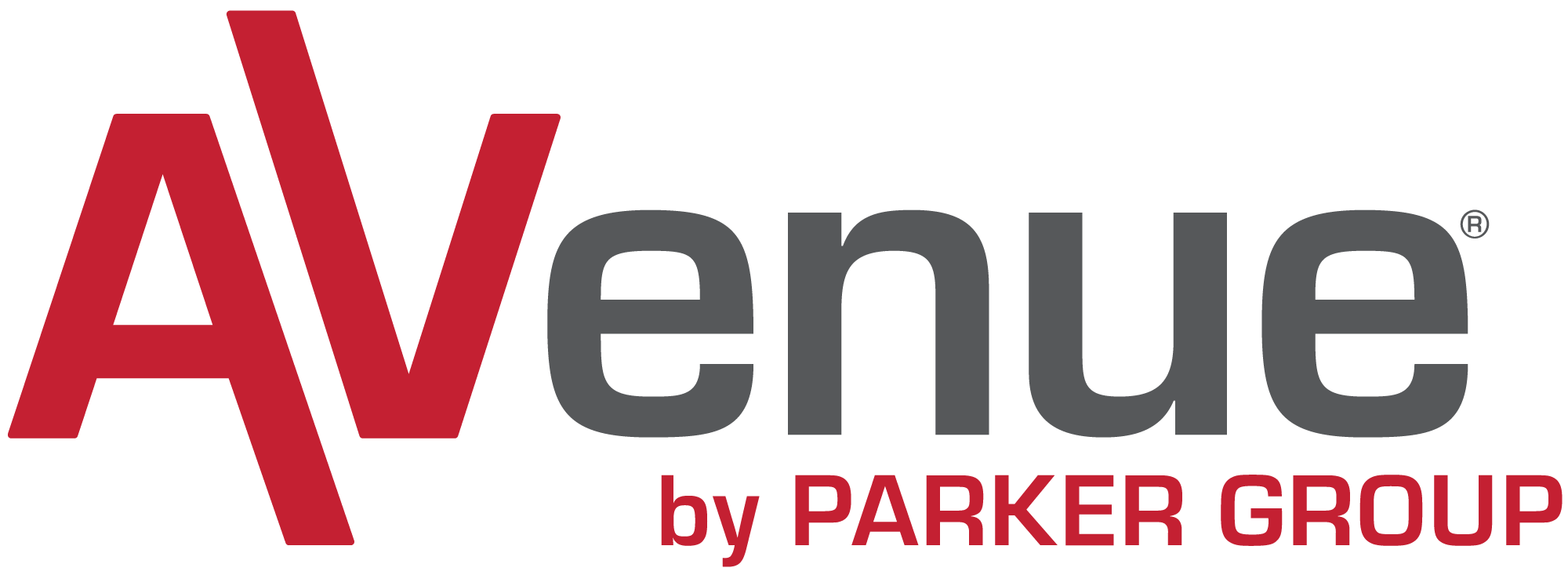Executive Q&A: A New Dimension to Operational Awareness
Parker Group founder and CEO Valerie Parker is changing the multiview game for control rooms with AVenue.

A daily selection of features, industry news, and analysis for AV/IT professionals. Sign up below.
You are now subscribed
Your newsletter sign-up was successful
SCN: What prompted you to establish Parker Group back in 1998?
Valerie Parker: I met my husband, a future Navy pilot, while studying at Georgetown. Being a military brat, I knew I had to choose a career path that would allow both mobility and advancement. I spent a long weekend (and about 1,000 Post-It notes) and hatched a business plan to pursue government contracting with a focus on aerospace and defense. I’ve worked on major projects ranging from airplanes and engines to operations and maintenance to flight training and even missile defense. I immersed myself in this world, learning everything I could about contracts, finance, technical project management, and business development in the aerospace industry. Eventually, I gained sufficient knowledge, skills, and experience to launch my own woman-owned government contracting firm, Parker Group. Since then, I haven't looked back.

SCN: When you showed me AVenue at InfoComm, I said it was like a DVR for multiviewers. Can you provide a more thorough description for our readers?
VP: AVenue is an AV over IP solution designed for organizations to synchronously capture, share, record, store, and replay content with unparalleled ease. These servers don't just passively store incoming streams; they actively share them in real time, allowing users to access vital information from anywhere in the world.
Control rooms typically display only live feeds. AVenue changes that by enabling synchronous recording of dozens of IP streams, complete with DVR-style controls. Operators can now pause and rewind live video wall feeds without interrupting operations, bookmark incidents for later review, and analyze data displayed during a specific event (not just what a single camera captured).
The ability to play back the entire situational view adds a new dimension to operational awareness. AVenue empowers teams to react swiftly, make informed decisions, and maintain control over critical situations with confidence.
SCN: Can you provide customization for AVenue?
A daily selection of the top stories for AV integrators, resellers and consultants. Sign up below.
VP: Yes, AVenue was designed for customization. AVenue is able to meet the unique needs of diverse users and environments. It is built as a multi-stream, IP-based network recorder and playback appliance. AVenue is engineered for flexibility without compromising performance.
SCN: What organizations can most benefit from AVenue?
VP: AVenue is ideal for organizations operating in mission-critical and high-pressure environments. This includes control rooms, defense and government agencies, training and simulation centers, security providers, the public sector, and healthcare institutions. TWhether for live monitoring, post-event analysis, or continuous training, AVenue supports the precision and adaptability these high-pressure settings demand.
SCN: Are there any recent deployments you can discuss?
VP: Given the nature of our work, a lot of our deployments are under strict confidentiality. A recent project we can talk about was with a major Department of Defense Research, Development, Test, and Evaluation (RDT&E) and Training range. We helped them transition from decades-old baseband video infrastructure to a fully modernized AVoIP environment using a VuWall TRx/PAK system. This deployment represented a significant digital transformation for the facility. Their legacy baseband video system was not only aging, but it lacked the flexibility, scalability, and centralized control that today's mission-critical environments demand. The system provides optimal functionality, high availability, and maximum performance in supporting national priority developmental and operational test and training programs.
The ability to play back the entire situational view adds a new dimension to operational awareness.
SCN: How important is AVoIP to the future of Pro AV industry?
VP: AVoIP is extremely important because it allows audio and video to be distributed over standard networks, making systems more scalable, flexible, and easier to manage. Quite honestly, it truly is the future of the Pro AV industry. AVoIP has moved well beyond being a trend and has become the key to most modern business operations. Organizations that embrace AVoIP are upgrading and future-proofing their infrastructure to keep up with the evolving tech space. It removes the physical limitations of traditional AV systems, making it possible to route, control, and monitor AV content from virtually anywhere. This shift reduces infrastructure and costs and supports faster decision-making, better collaboration, and more responsive environments.
SCN: How is AVenue handling security for all the content going through it?
VP: AVenue is an application that can layer onto both unclassified and classified networks. Network transmissions are secured with strong encryption and authentication protocols, ensuring every piece of content that moves through AVenue is fully protected from end to end. These features help prevent unauthorized access, tampering, or interception across the network. Security is not an add-on but is built into the core of how AVenue operates, ensuring that high-stakes content remains protected in even the most demanding environments.
SCN: What companies are partnering with you?
VP: Working with trusted industry leaders allows us to deliver strong, holistic solutions and create new ideas. One of our current partners is VuWall, whose technology has been central to several major projects. This year, Parker Group received VuWall’s Top Performer Award at InfoComm for the largest deployment for the Department of Defense and the Department of Homeland Security. It was a significant milestone that reflects our technical expertise and operational discipline. Our collaboration with VuWall continues to raise the bar for reliable and forward-thinking integration in mission-critical environments.
SCN: What new initiatives are we likely to see from your company?
VP: Parker Group is on the cusp of a new release that incorporates enhanced Real-Time Streaming Protocol (RTSP) features that enable AVenue to run in a virtual environment. Customers will have access to new hardware technologies and features such as larger storage options, faster boot times, and improved security measures, as well as improved multimedia network streaming control.

Mark J. Pescatore, Ph.D., has been the content director of Systems Contractor News since 2021. During his career, he's hosted and programmed two ongoing regional industry trade shows (including Future B2B's AV/IT Summit), produced and hosted podcasts and webinars focused on the professional video marketplace, taught more than a dozen college communication courses, co-authored the book Working with HDV, and co-edited two editions of The Guide to Digital Television.
